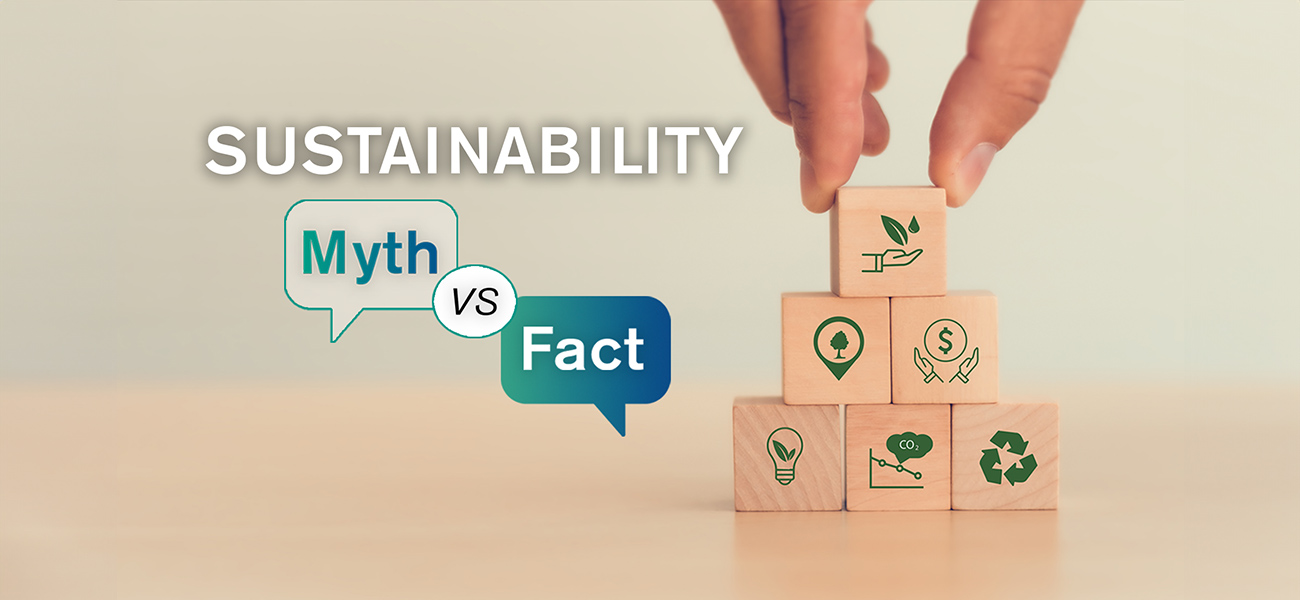'Sustainability' is a word that people hear almost daily, yet it is often misunderstood. For example, sustainable actions in the context of the automotive industry would include reducing emissions; however, sustainability extends far beyond that. For Nissan, sustainability is not a buzzword. It's the driving force behind our creativity, innovation, and research.
Nissan's approach
Our Nissan Green Program 2030 is our roadmap to achieve carbon neutrality by 2050, while our Nissan Social Program 2030 is how we plan to make Nissan a more people-centric company. These plans cover everything from climate change to air and water quality, to building inclusive communities and embracing a circular economy. We know it's a lot to digest.
That's why we want to show what sustainability means to us and our industry, by debunking five common myths.
Myth #1: Sustainability efforts are only limited to green initiatives
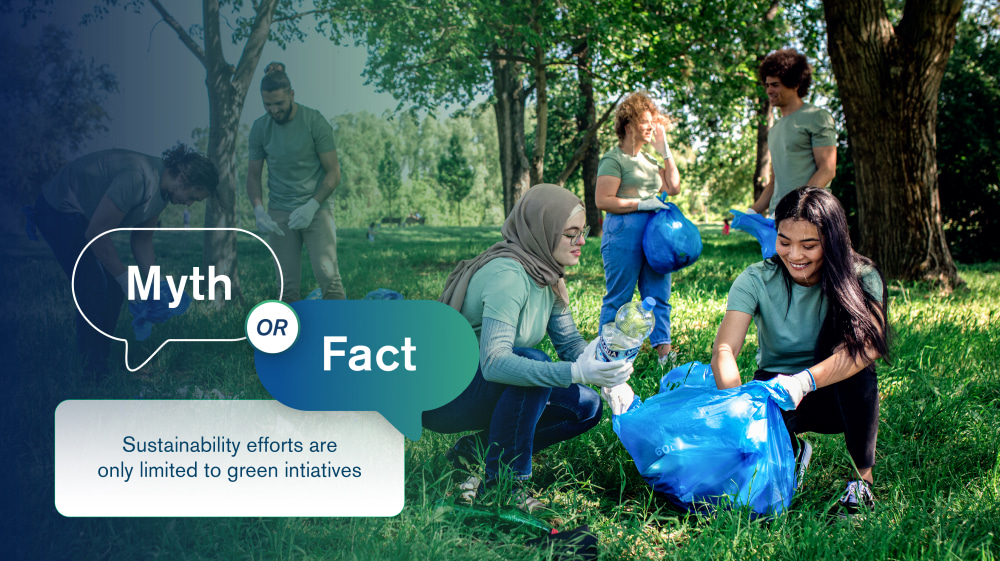
True sustainability goes far beyond being only eco-friendly – it's also about social responsibility and making a positive impact on communities. Building a better future means not only protecting our planet but also empowering people. By fostering a diverse and inclusive workforce, and through initiatives like the Nissan Social Program 2030, we're helping to create stronger, more resilient communities. These communities are better equipped to support the United Nations Sustainable Development Goals, which include promoting impactful work and economic growth, reducing inequalities, and building sustainable cities and communities. Ultimately, sustainability initiatives are about creating net positive changes for both the environment and society.
Myth #2: Electric vehicles have limited range and are impractical
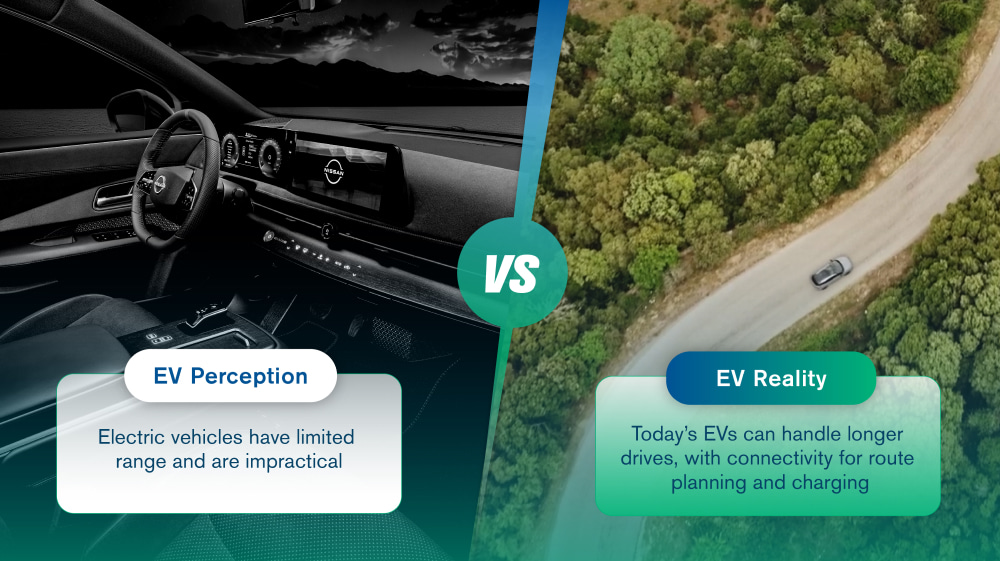
Worried about range? Today's electric vehicles (EV) can easily handle daily commutes and longer drives alike. Not only do EVs help reduce your carbon footprint, but with more charging stations popping up, finding a place to plug in when you're on the road is becoming easier. The Ariya, for instance, is offered in a variety of models that support both everyday drives and longer weekend adventures.
Myth #3: Social media doesn't help the environment

Some critics argue that raising environmental issues online is ineffective, claiming it doesn't always lead to real change. However, social media can play an important role in driving environmental progress forward by raising awareness and connecting like-minded eco-conscious individuals. For instance, social media can inspire people to adopt eco-friendly habits, support sustainable businesses, and join conservation or social good efforts, transforming digital conversations into meaning, tangible, real world changes. At Nissan each year, we come together for a single act of kindness through Onigiri Action, a social good program amplified online, focused on feeding school-aged children in need. So, feel good about using social media to spread the word and make an impact.
Myth #4: Plastics are bad
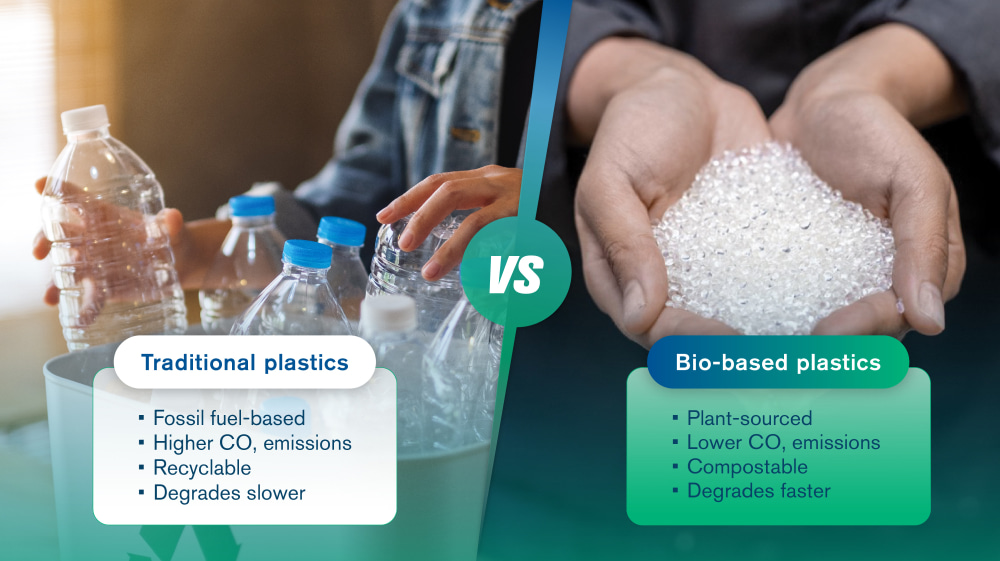
Thanks to innovations, we now have biodegradable and plant-based plastic alternatives offering more sustainable options. However, in fields like manufacturing and automotive, plastics are essential for their strength, versatility, and lightweight properties. These qualities make plastics difficult to fully replace, as they contribute to lighter, more fuel-efficient vehicles. The key is to use plastics responsibly, prioritizing recyclability and supporting the shift toward greener materials while preserving the valuable benefits that plastics provide.
At Nissan, plastics are labeled with an identifier at the time of manufacturing to ensure easier sorting and recycling for when the vehicles reach end of life.
Myth #5: Only large-scale sustainability efforts make an impact
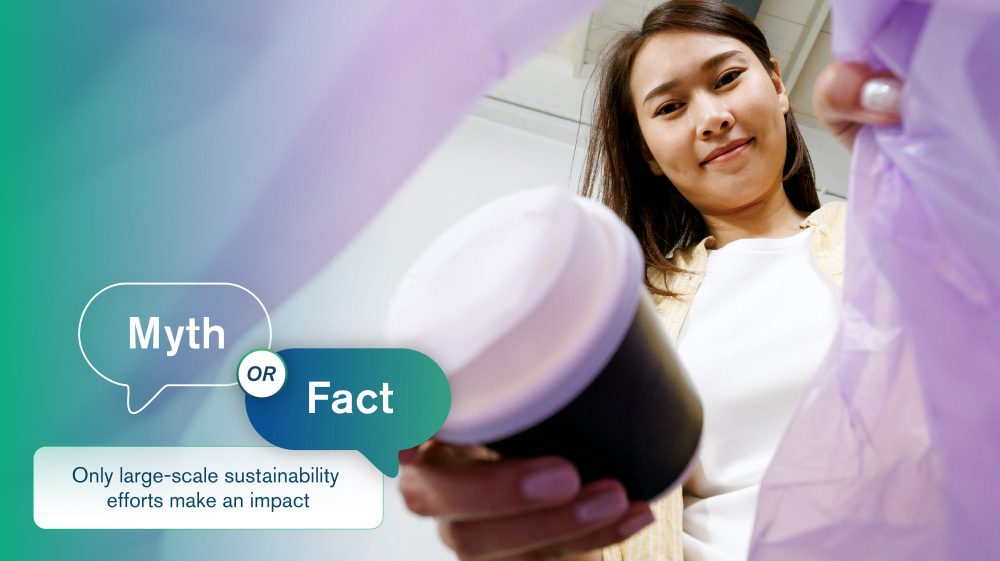
Small actions in your own community can be just as powerful in the fight against climate change. Every effort counts. To illustrate, our teams at Nissan separate their trash for recycling as part of their daily routine. It's a simple habit, but when everyone does it, the impact is huge. Whether you're recycling at home, bringing your own bottles, or choosing energy-saving appliances, small steps can lead to big strides toward a greener future.
At Nissan, sustainability isn't about ticking boxes – it's about enriching lives and building a brighter, more sustainable future. Together, with our customers, partners, and communities, we can create a healthier planet for all.


